Veda is the Sanskrit word for knowledge. Everyone wants to be happy, healthy, wealthy, and wise. The Vedas contain perfect knowledge for fulfilling all the aims of human life, culminating in spiritual enlightenment. Learn more about Vedic Science
The Vedas are like a tree: each division of the Vedic literature forms a unique branch of wisdom.
The ripe fruit of the Vedic tree is the text known as the Bhagavata Purana. This book presents the essential Vedic teachings and is sufficient in itself for God realization.
“Persons who have lost their vision due to the dense darkness of ignorance in the Age of Kali shall get light from the Bhāgavata Purāṇa.”
Learn more about the Bhagavata Purana
Essential Vedic Concepts
Vedic Events in February 2025
- SATURDAY, FEBRUARY 8: Jaya Ekadashi, A day of spiritual fasting
- WEDNESDAY, FEBRUARY 12: Surya enters Aquarius
- SUNDAY, FEBRUARY 23: Vijaya Ekadashi, A day of spiritual fasting
- WEDNESDAY, FEBRUARY 26: Maha Shivaratri
Vedic Personality Test
Get StartedOur Vedic Personality Test will provide you with invaluable insight into how you can adjust your habits and lead a more balanced and progressive life — both materially and spiritually. |
 |
Vedic Astrology
Astrology is known as Jyotisha, or the light of the Vedas. Skilled astrologers of the past were able to see future events, find lost objects, and understand a person’s characteristics and fate by studying the planets and stars.
The English word “star” comes from the Sanskrit word stri, referring to the constant rotating movement of the stars around the axis of the polestar. From this same Sanskrit root came the Latin word “astro,” and many English words relating to the night sky: astronomy, asteroid, astronaut, etc.
Vedic astrology is an extraordinary science that blends psychology, social science, life planning, and predictive science.
The Vedic History of Humanity
The Puranas teach important lessons about how to live a successful life. They contain accounts of great kings and sages who attained self-realization and perfect God consciousness.
The Vedas explain that history is cyclical. There are four yugas that repeat again and again like the four seasons of the year, until finally the universe is annihilated. Then after a period of being unmanifest, the universe expands again.
LEARN MORE: The four ages of a Puranic epoch are known as Satya Yuga, Treta Yuga, Dvapara Yuga, and Kali Yuga. Read our guide to the four yugas and their unique characteristics.
Proof of the Puranic Record
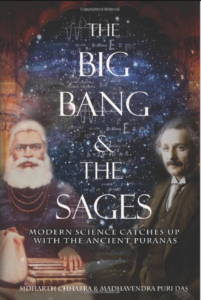
Many people falsely believe that the Puranas are mythological. This could not be further from the truth. The Puranas are historical records of the past. They contain accurate dates for major events such as the origin of our universe, the creation of the sun and solar system, and the Permian mass extinction.
The book The Big Bang and the Sages extensively documents the many scientific proofs for the accuracy and reliability of the Puranic record.
Ayurveda – Vedic Health
The section of the Vedas that deals with health is known as Ayurveda, or knowledge of life. Our physical and mental well-being is vital for living productive and happy lives. But the vast majority of people today are very unhealthy.
Ayurveda explains that every individual has a unique state of balance in which they experience optimal health. Disease is caused by imbalance. By eating right and living a balanced lifestyle, it is possible to avoid illness altogether. As Benjamin Franklin once said, “an ounce of prevention is worth a pound of cure.”
| What is Ayurveda? | What is Agni? |
| The 7 Dhatus | What is Ama? |
Frequently Asked Questions
Is there really science in the Vedas? Yes, the Vedas contain scientific descriptions of all aspects of human life, from sociology to cosmology. However, the Vedas primarily emphasize the science of consciousness. It is only through the evolution of consciousness that human beings can find true happiness and satisfaction.
What does “Vedic” mean? Vedic is the adjective form of the word “Veda.” Anything that is related to the Vedas can be called “Vedic.”
Want to know more? Check out our article, What are the Vedas?
What are the four main Vedas? The four primary Vedic texts are the Rig Veda, Sama Veda, Yajur Veda, and Atharva Veda. However, these texts are no longer available in their complete form. For this reason, the Puranas are the most reliable source of Vedic knowledge today, and they are commonly known as the fifth Veda.
What are some Vedic science facts? The Vedas contain accurate data pertaining to all fields of science. Here are just a few examples:
- The date of the “Big Bang.”
- The date of universal annihilation or the death of our universe.
- The date of the Permian mass extinction.
- The origin of our solar system as well as its destruction.
- The developmental stages of a human fetus within the womb.
- The destination of the soul at the time of death.
 Karma
Karma Dharma
Dharma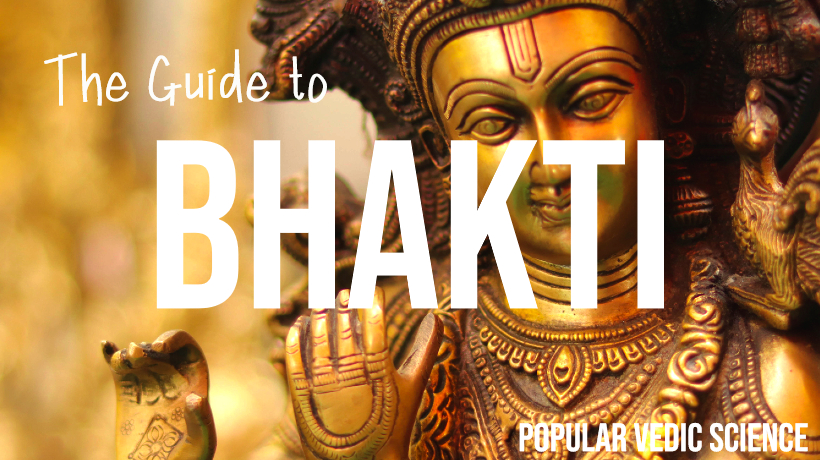 Bhakti
Bhakti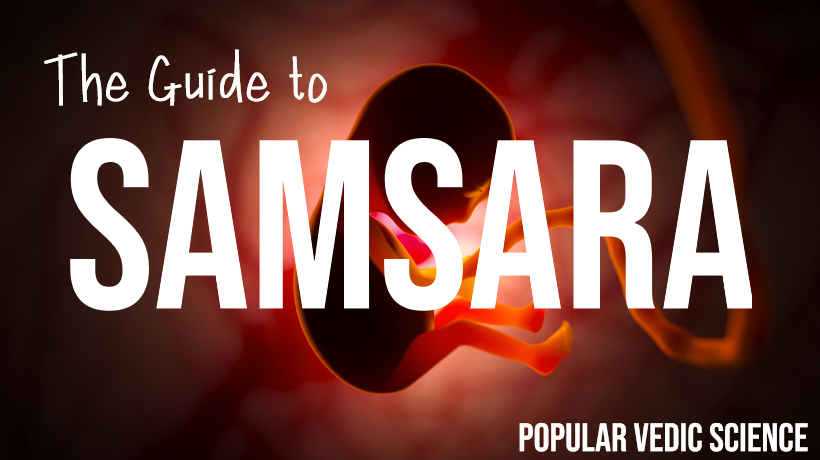 Samsara
Samsara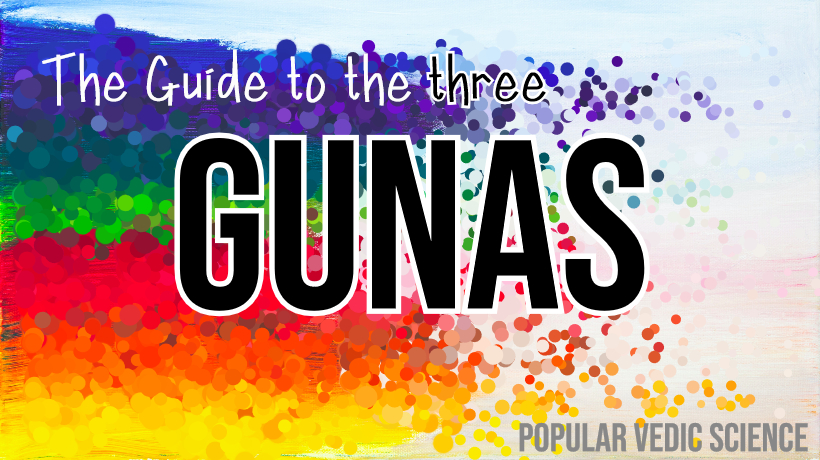 The Gunas
The Gunas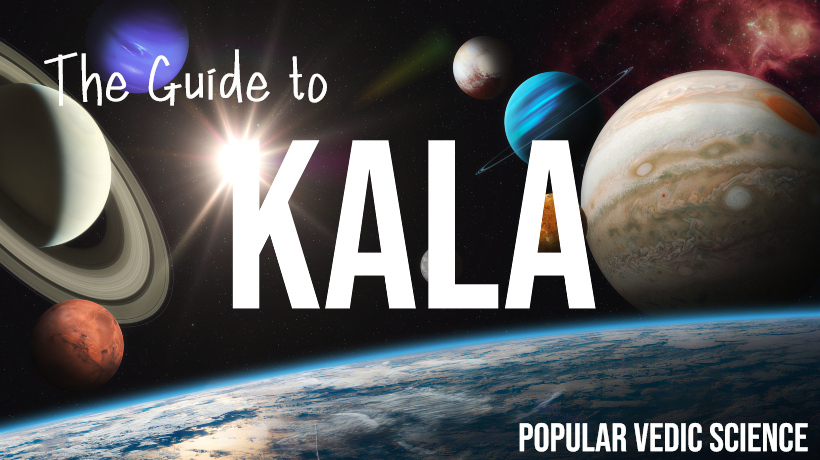 Kala
Kala